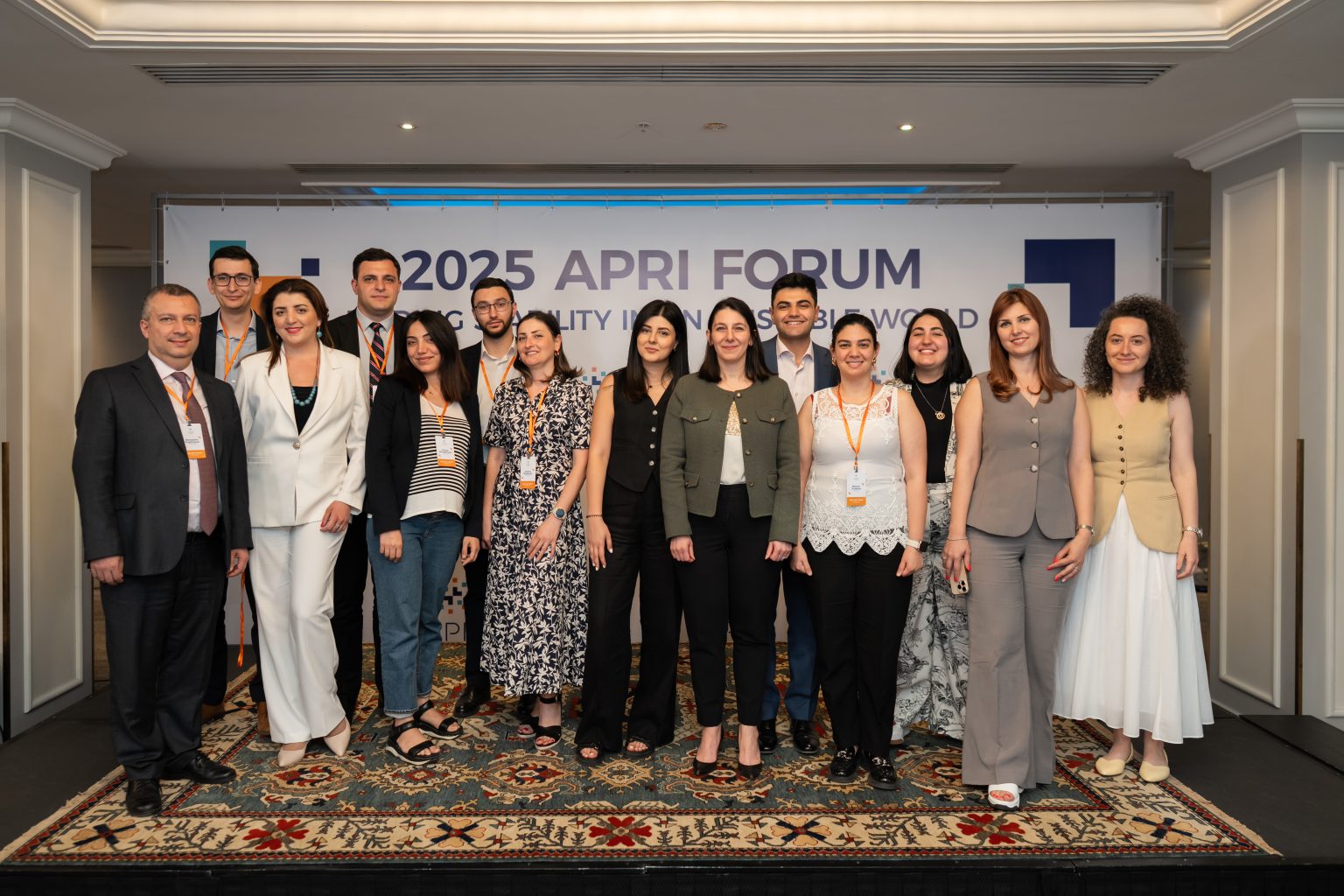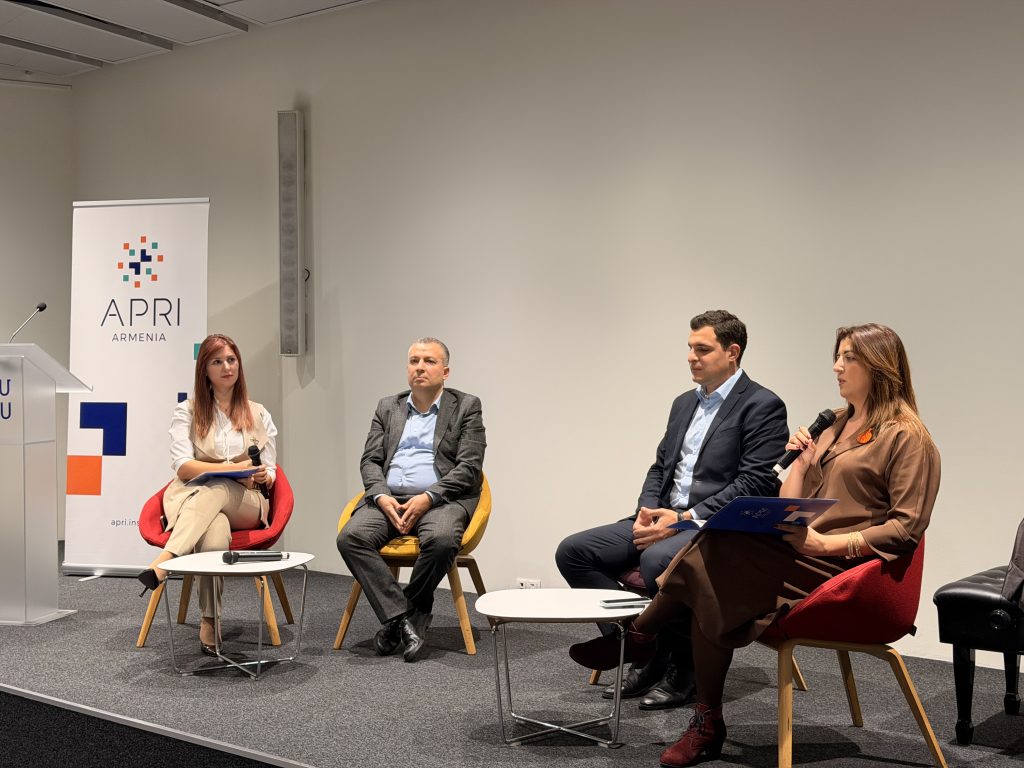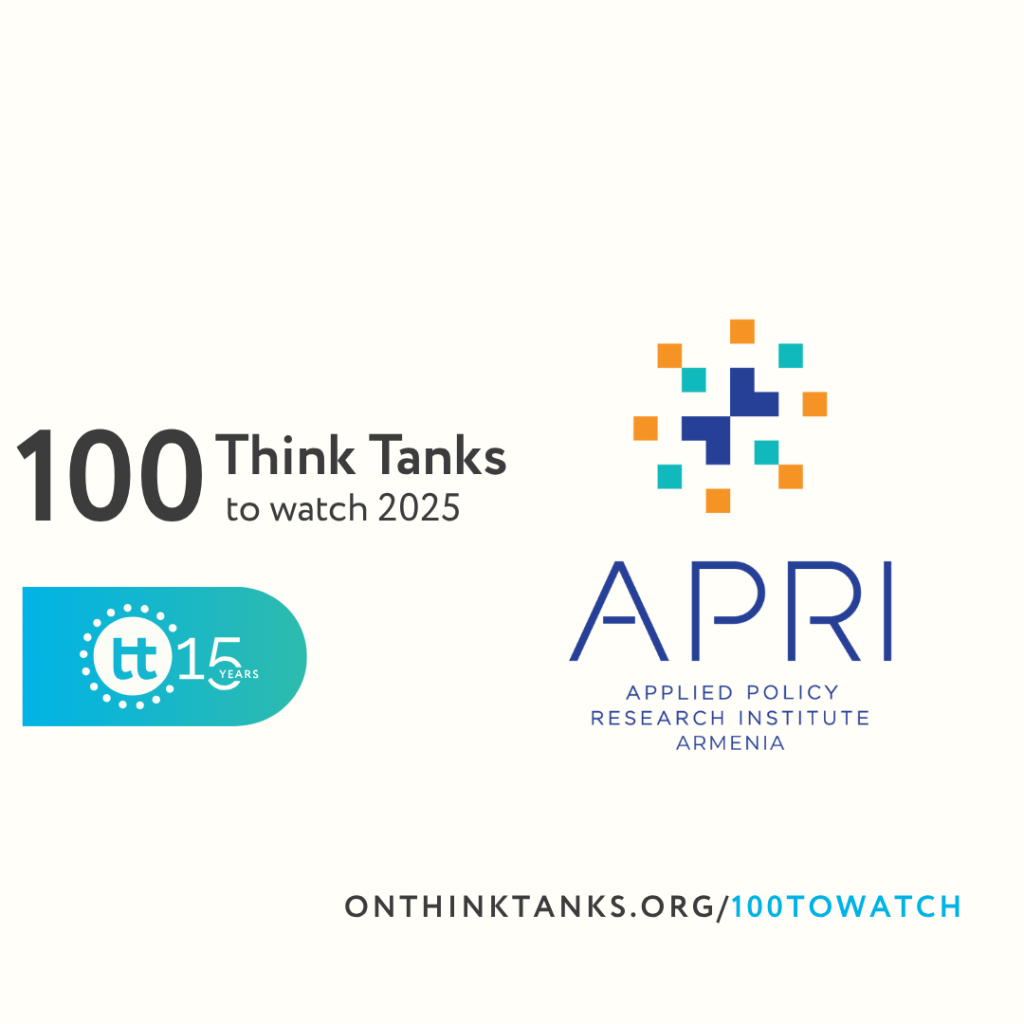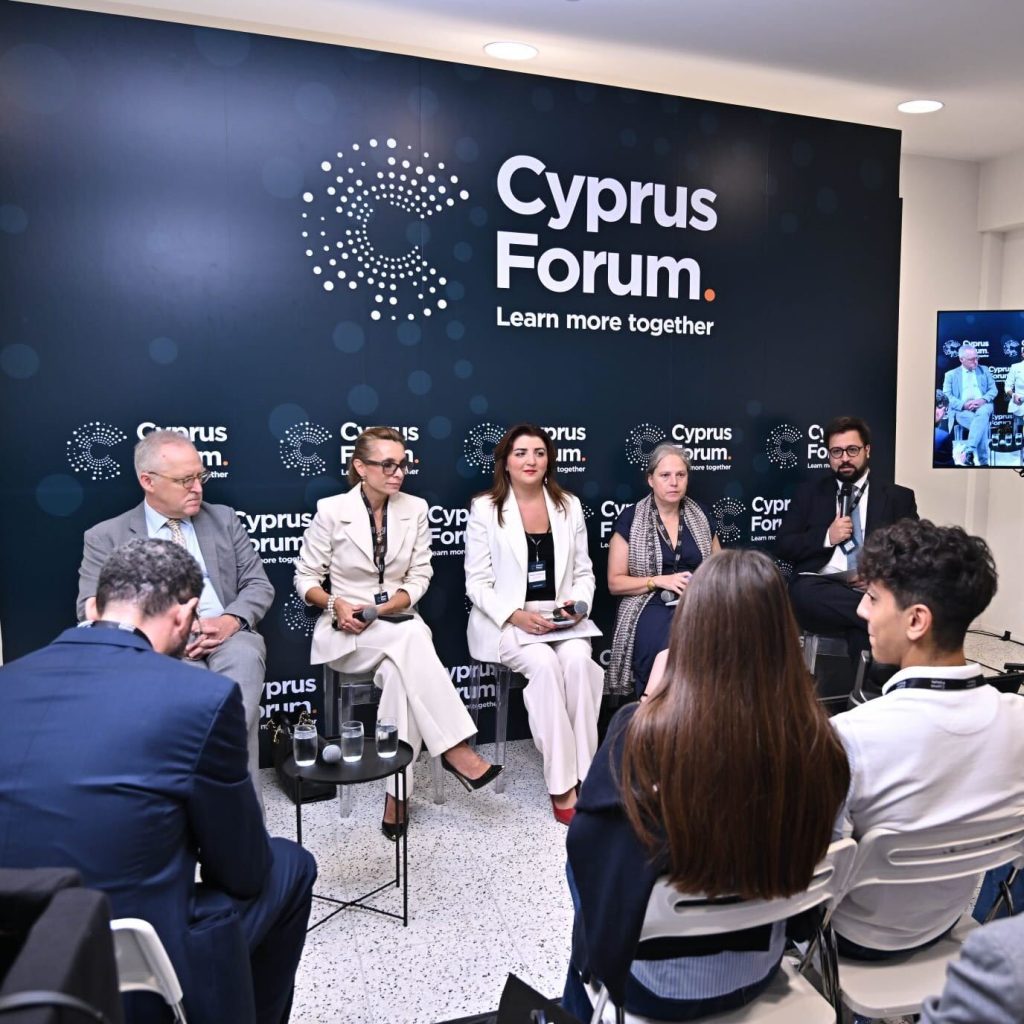The APRI Forum, held in Yerevan for the fourth consecutive year, creates a world-class platform for dialogue on peace and prosperity in the South Caucasus.
The Applied Policy Research Institute of Armenia, a leading independent think tank based in Yerevan, held its annual APRI Forum on June 11–13, 2025, on the theme “Finding Stability in an Unstable World.” The Forum brought together policymakers, academics, civil society representatives, and diplomats and offered in-depth and thought-provoking conversations on the global uncertainties shaping Armenia and the South Caucasus.
We hosted around 58 speakers, including 14 international speakers from eight countries: France, India, Russia, Germany, the United Kingdom, Iran, Georgia, and Kazakhstan, most of whom were visiting Armenia for the first time.
The Forum opened with remarks from the Vice President of Armenia’s National Assembly, Hakob Arshakyan, who emphasized the transformative developments in Armenian-Indian relations. He made headlines by proposing Armenia’s potential role as a strategic bridge connecting India to Europe via Iran, Georgia, and the Black Sea. On June 13, amid breaking news of Israeli strikes on Iran, Secretary of the Security Council Armen Grigoryan warned of the negative implications for the region and affirmed that Armenia has considered possible military escalation scenarios and undertaken relevant preparations.
In response to the unfolding regional crisis, APRI Armenia hosted a spontaneous onstage discussion, with its top analysts offering their first insights on the Israel–Iran conflict and its potential effects on the South Caucasus.
The Forum also marked the release of the report “Armenia’s Foreign Policy after the Second Nagorno-Karabakh War: Diversification in the Post-Unipolar World,” authored by Benyamin Poghosyan, APRI Armenia Senior Research Fellow. It is the first research publication in Armenia to examine the country’s challenges in diversifying and deepening diplomatic, economic, and security relationships over the last four years.
Beyond formal sessions, the Forum provided valuable networking opportunities for speakers, participants, and other key stakeholders from the public and private sectors.



